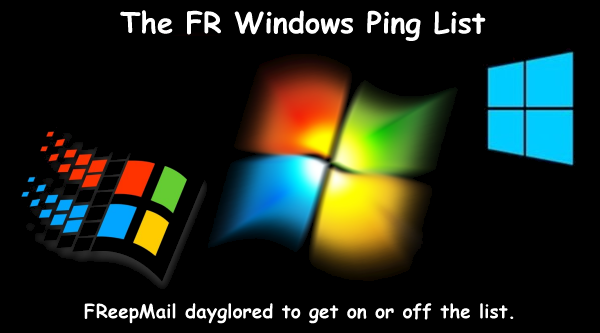
Posted on 05/01/2015 2:03:16 PM PDT by dayglored
Build 2015
Engineers from Microsoft's Windows Server team took the stage at the Build developer conference in San Francisco this week to share more details on Nano Server, the upcoming micro-sized version of the OS aimed at cloud deployments.
"Nano Server is by far the most important, most significant change we've made in Server since Windows NT," proclaimed Jeffrey Snover, a Microsoft distinguished engineer.
We first heard about this new iteration of Redmond's server OS earlier this month, although it's not due to hit general availability until the next version of Windows Server ships sometime in 2016.
Taking a page from small-footprint, cloud-centric Linux distros like CoreOS, Red Hat Atomic Host, and "Snappy" Ubuntu Core, Nano Server delivers a platform that's compatible with Windows Server but includes nothing but the barest minimum of components. On Thursday, Snover and Windows Server program manager Andrew Mason gave an overview of just how that works in practice. Nano Server is the future of Windows Server
One thing that Snover made plain is that Nano Server isn't a side project of the Windows Server team or some kind of experiment. Rather, it is the first visible result of a massive code refactoring project that will eventually change the way that every version of Windows Server is built and delivered.
...
(Excerpt) Read more at theregister.co.uk ...

Will the blue screen be nano sized?
No screen. The nano server has no GUI, and is controlled remotely by PowerShell commands.
So they'll have to do the BSOD with ASCII character graphics.
It’’l be the blue postage stamp.
This “cloud” stuff is stupid unless its in my house and I control it.
You can have that. It's called a "private cloud".
never mind.
No mention of the NSA engineers?
Here's a scenario for you: you have a robust home network configured. You have redundant storage, redundant servers, maybe some VMs for different functions. You're meticulous with your backups to ensure you'll never experience a long term outage or loss of data.
You're out to dinner one night with the wife. The cat jumps up on the counter, knocks something into a wall socket, sparks fly and set your house on fire. It's a total loss. How are those backups working for you?
I'm recalcitrant to adopt cloud technologies, but I make certain that I have 3 copies of my data: one I keep up-to-date, one I keep locked in my safe, and one I keep in the cloud for any eventuality. You may never need it, but with "cloud" storage for long-term stuff like back ups running at less than $0.03 per GB, you'd be a fool not to consider it to keep your important data safe.
Encrypt, encrypt, encrypt, encrypt, encrypt, encrypt, encrypt, encrypt, encrypt, encrypt,...
I favor PGP/GPG with 4096-bit keys.
could -> cloud
My backups are IPSEC encrypted at rest first, transferred over encrypted protocols, and then encrypted again on Microsoft’s Azure system. Only I have the certificates used to encrypt the first time, and I use 4096 bit keys.
I also have off-site physical backups (encrypted of course) that can be retrieved very quickly compared to even the 100Mbps fibre internet connection. Never underestimate the bandwidth of a station-wagon full of hard drives.
I didn't think you could use IPSEC to encrypt at rest. It's an "on the fly" packet level encryption that secures data on the wire.
I saw that too, but I just figured I had something to research tonight. :)
How about it, rarestia... how's it done?
definitely would need some strong encryption
IPSEC is used during the backup process (Windows Backup) to the main Windows server (over the wire) in my home environment. The store is encrypted with BitLocker (at rest) and then the backups are indexed, encrypted, and shuttled off to Azure.
See #19. Should’ve clarified that the data is encrypted in transit and is encrypted at rest with BitLocker. I have an archiving program that catalogs the backup and encrypts them into 10 GB chunks (using certificates) for upload to Azure.
Disclaimer: Opinions posted on Free Republic are those of the individual posters and do not necessarily represent the opinion of Free Republic or its management. All materials posted herein are protected by copyright law and the exemption for fair use of copyrighted works.